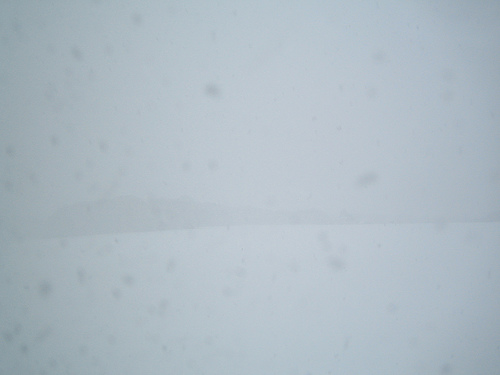Are you reading as much as you’re writing? And if you are, what are you reading? Are you reading – and buying – the kinds of publications you want to be published in as a writer)? ‘So many people want to write, and less want to read,’ says Amy Espeseth, writer (Sufficient Grace, Trouble Telling the Weather), publisher (Vignette Press) and academic (NMIT). ‘If everyone who submitted to Geek Mook had bought a [copy] we would be able make a lot more future publications… our goal is to break even and we’re certainly not breaking even,’ says Espeseth.
It’s a reality for small publishers echoed by Zoe Dattner, General Manager of the Small Press Network (SPUNC) , ‘So much goes into [publishing a work], and when it disappears without a trace [it’s disappointing].’ Dattner says this happens ‘all the time’.
I’ve heard the calls to writers to buy the publications we want to write for – as has Espeseth, ‘Oftentimes as writers we get kind of frustrated at the lack of money [and] the lack of support. I’m very much in support of all of the conversations,’ she says. But Espeseth has the publisher’s perspective too, ‘at the same time I’d like to acknowledge that (for me as a publisher) the money is coming directly out of my pocket. I’m gambling on you. I’m betting on you. And more often than not those gambles or those investments don’t work out financially,’ she says.
It’s a reality that the writers’ debates don’t always acknowledge. ‘Everything doesn’t have to be about money. It can be about producing beautiful books,’ says Espeseth. Even now I can hear a few writers calling foul. But I have to wonder about our priorities when Espeseth tells me, ‘It is difficult when you see people be at a launch celebrating and paying the equivalent of the cost of the publication for beer and then not buying the publication.’
The money debate aside, the relationship between writer and publisher has always been one of co-dependence. Writers don’t work in a vacuum. We need good writing and stories to read. We need new ideas to consider. We need guidance on our phrasing, structure and grammar (plus proofreading!). And of course, we need ways to get our work to readers.
While new media does give writers more options for distribution, going through a reputable publisher would be the choice of most. Validation from a publisher is a kind of vindication (not to mention flattering to the ego). And publishers are more able to get our work to readers. As well as that, publishers (and their editors) can vastly improve the quality of our work.
‘It’s a not very well kept secret for people who work in the industry that your editor or your publisher will sometimes change the trajectory of a work,’ says Espeseth. The Raymond Carver / Gordon Lish ‘partnership’ is an example at the extreme end of the spectrum, one which resulted in the later publishing of Carver’s stories uncut. But writers like Espeseth daily express their gratitude, ‘Without [Aviva Tuffield and Ian See’s] help and assistance I don’t think I would have ever finished [Sufficient Grace]. And it certainly wouldn’t be the book that it is without them,’ she says.
The secret may not be well kept, but it is, as Henry Rosenbloom of Scribe recently wrote, a ‘dirty’ one. ‘Everybody has internalised the editor’s role, without ever acknowledging the contingencies it has to deal with. Nobody outside the publishing house knows the challenges that were presented by a given manuscript, and nobody knows how much or what it did to help improve it,’ he writes on the Scribe website. The writer’s name is most often noted outside the publishing industry. But without the publisher there wouldn’t be a book, or at the very least, there wouldn’t be the same book.
‘Although the writer does a lot of work, the publisher does as well. And it shows a lot of foresight and commitment when people choose to put their time, energy and money into publishing someone else’s work,’ says Espeseth. That’s why the literary prize that she’s recently judged (with Bethanie Blanchard and Andrew Wrathall) awards both writer and publisher.
As its name implies, nominees for the Most Underrated Book Award (MUBA) can’t have won any major awards as a published book. It’s the kind of prize you would never aim to win, but having won it, would certainly celebrate (with your publisher). The shortlist comprises four fiction titles (The Dark Wet by Jess Huon (Giramondo), I Hate Martin Amis et al. by Peter Barry (Transit Lounge), Two Steps Forward by Irma Gold (Affirm Press) and The Cook by Wayne Macauley (Text)). The winner will be announced on 8 November and all four titles will be discounted 20% at Readings for a month.
Although this year’s final list comprises fiction, Espeseth says that nonfiction titles were nominated. It’s anticipated that next year’s awards will involve different genre categories.
The MUBA acknowledges the intrinsic ties (between writer and publisher) that lead to beautiful books and great reading. But as Espeseth reminds us, ‘the most important thing is to sell books. And without selling books … the publishers can’t continue to publish and then the writers have nowhere for their work.’
The deal at Readings will do its part to support the writers and publishers of the MUBA shortlist. Meanwhile I hope that writers will reconsider their budgets for beer and books.



